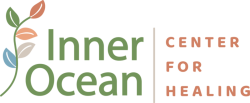Healing from Trauma: Post-Traumatic-Stress Disorder PTSD (Part One)
Trauma itself is not always a problem. Yes, it sucks. Yes, it can be life-altering. No, we do not wish trauma on anyone. But with enough personal resources, healing from trauma can be quick and even life-enhancing (post-traumatic growth, anyone?). Though, this is not always the case. Most of us do not have the necessary resources to begin to heal from trauma until long after it has occurred (and that is if we are lucky, have resources like time and money, etc.). Therefore, trauma leaves its residue: post-traumatic-stress-disorder (PTSD) among other health issues. But before we dive into that, let’s unpack the experience of trauma itself.
What exactly is trauma?
Trauma is a psychological reaction to an extremely stressful experience where an individual felt stuck, hopeless, and unable to respond to the experience in the way they would have wanted to.
When trauma goes unhealed, it can turn into pervasive dysfunction for an individual and have far-reaching impacts. Not only can it lead to an inability to work, have positive relationships, or feel good about oneself or one’s life, unhealed trauma often lies at the root of negative behavior and actions.
We are not at the complete mercy of trauma. Trauma can be healed, which is why it is vital that we learn to identify it and to work with it. Because with the right resources and support, believe it or not, trauma can transform into an experience that ultimately enhances our lives, rather than destroys it.
All this being said, not all extremely stressful events lead to trauma. What makes the difference is a matter or resources, both internal and external. (More on this later.)

Post-Traumatic Stress Disorder (PTSD)
After experiencing trauma, it is typical to expect that a person would go through a period of “coming down” as they return to their lives and routines. However, when someone has been diagnosed with post-traumatic-stress-disorder, they are having difficulty returning to their typical state of functioning. Their life has been deeply impacted by the trauma.
PTSD is a psychological disorder diagnosed after a traumatic experience or the witnessing of a traumatic experience when the person does not easily return to their healthy state of functioning prior to the experience. Flashbacks, nightmares, severe anxiety, and constantly re-living the trauma in a person’s mind or body are usually key symptoms leading to this diagnosis.
 Symptoms of PTSD can be broken down into 4 categories:
Symptoms of PTSD can be broken down into 4 categories:
- Intrusive memories (such as dreams, nightmares, or flashbacks)
- Avoidance behaviors (such as with places, people, or activities that remind you of the event)
- Negative changes in thinking and mood (like pervasive hopelessness, feeling detached, a lack of interest in things that were once interesting, difficulty feeling positive emotions about oneself and others)
- And lastly, changes in physical and emotional reactions (such as being easily startled, on guard, developing self-destructive behaviors, insomnia, having difficulty concentrating, angry outbursts, and feeling overwhelming guilt or shame)
For young children, PTSD can often look like nightmares, bed-wetting, regression in speaking, being suddenly and extremely clingy, and even re-enacting the traumatic event through play or art.
Unprocessed trauma and latent stress hormones in a person’s body is what causes this residual effect of trauma. General day-to-day stress can bring these symptoms out and/or intensify these symptoms. It is vital that if you are having this experience, to grow your database of resources. Reach out to someone (yes, people can be resources!) and grow your “Dream Team,” (people in your community who will support you, root for you, and who will be keeping tabs on you however near or far you will hold them). Look for practitioners who specialize in working with trauma, PTSD, etc.
Since acupuncture is based on subtle changes in the central nervous system, it is the perfect medicine for repairing from trauma. Acupuncture instigates progressive increases in the secretion of neurotransmitters, serotonin and endorphins in particular, therefore activating the body’s natural healing mechanisms. Though this can be a gradual process, it is also highly effective in healing from trauma.
Not only the actual practice of acupuncture, but there are Chinese herbs made perfectly to support us in repairing from trauma by helping our body to get rid of latent stress hormones and “come back home” to ourselves. These are called adaptogens and they are amazing at re-balancing our body’s chemistry, hormones, and neurotransmitters and finding that state of calm alertness once again.
At Inner Ocean, healing from trauma is our specialty. Get in touch if you want us to be on your team or if you would like to work on building up some of your personal resources. We’ve got your back.
If you are a practitioner and want to become trauma-informed, please check out our Trauma Training modules offered for free on our nonprofit’s website.

